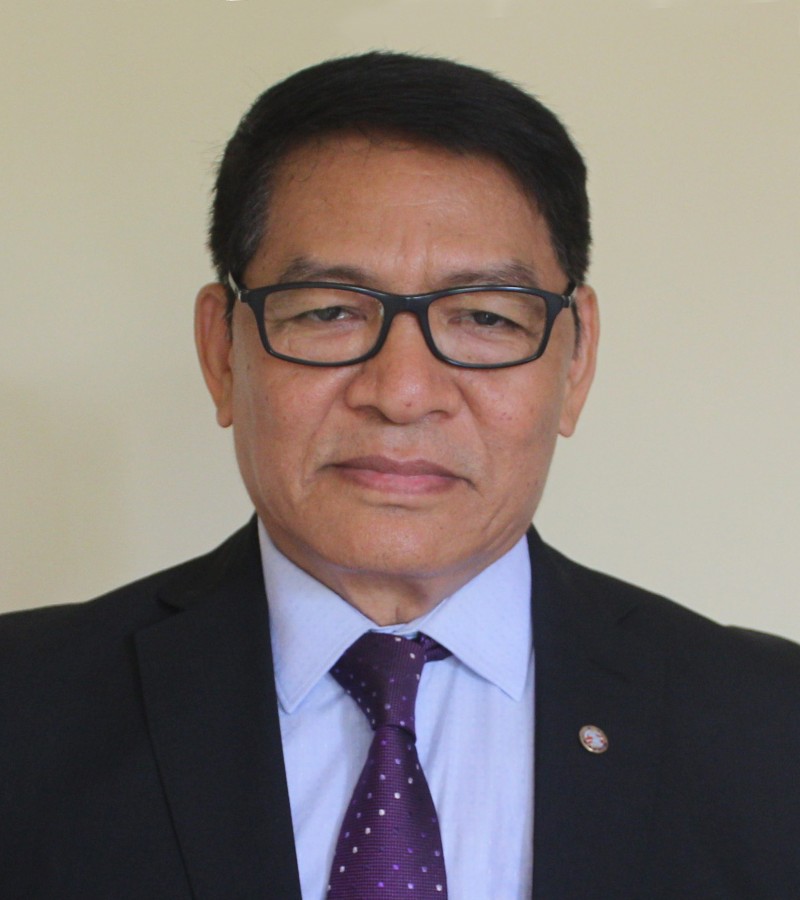Editorial
Tokyo 2020: Not just a Sporting Spectacle
Opinion | Editorial | John S. Shilshi | 13-Aug-2021

Since the first Olympics in 1896, the mega sports event held every four years have successfully brought the World’s Athletes together that scripted histories of incredible achievements, triumphs, and even heartbreaks. It has also been a century and quarter long journey of human history of connectivity, with shared objective of ushering a unipolar world through sports. The Tokyo Olympics 2020 was no exception. In fact, it has gone a notch higher because it achieved all that in a time when the world is facing an unprecedented hardship due to the pandemic.
Nothing came easy though for the International Olympic Committee. First of all, the greatest show on earth was forced to take place a year late. Secondly, it was surrounded by suspense, uncertainties and speculations as Covid ravage on mankind continued unabated, including on the very people who were supposed to play host. So much so that when the IOC made public that the Tokyo 2020 would take place from July 23 and close on the 8th of August, the Japanese public called for reconsideration. The reaction prompted Kyodo, a popular Newspaper in Japan to conduct a survey to ascertain what exactly the take of the Japanese people was? In that, about 59% of respondents preferred cancellation of the Games. Again, ten weeks before the scheduled start, another survey was conducted by Asahi Shimbun newspaper, and in this survey too, good 43% respondents favoured cancellation, while 40% preferred postponement.
Such overwhelming opinion from the Japanese public was hardly surprising because the fear was real, as the country already was reporting increasing cases of Covid 19. There were fears of Tokyo 2020 turning into a supper spreader of Corona virus. The road to Tokyo 2020 therefore was not a smooth riding one because ensuring that non with traces of the virus gained entry into the game itself was a herculean task. Thankfully, the Japanese government had a different idea. They were prepared to take the risk and allow the Games to be conducted though the event promised nothing much in terms of boosting the national economy commensurate to the huge expenditure incurred, pegged at roughly 28 trillion dollars. Equally resolved and resolute were the International Olympic Committee. The apex game body too was bent on ensuring that hopes fly high even when the world is virtually raged by the pandemic. As a sign of a world standing up in solidarity, the word “Together’ was added to the original Motto of the Games - Faster, Higher, Stronger, originally coined by a Dominican priest Henri Didon, in the opening ceremony of a school sports in 1881.
When the Games ultimately became a reality on July 23, empty galleries sadly welcomed the Athletes. The usual soundtrack of human cheering and clapping was missing since stadiums became out of bound for the public. Fans from 206 participating countries could only watch the glittering ceremony and cheer their teams through the Television screens. In other word, except for the 11500 strong Athletes and officials who competed or officiated physically, everything else was in virtual mode, the way life has been since outbreak of the pandemic.
These hiccups however did not discourage the Athletes from putting their best into the competition, nor did it lower the standards of the contests. It was game as usual. For the Athletes, not all 11500 who competed for 339 Medals in 33 different disciplines were fortunate to shed tears of joy. There were despairs and heartbreaks, and stories of ‘so near yet so far’. But every despair inspired hope - hope for better showing in the future, thus keeping the dreams alive. So in those 16 days of intense sporting show, the dark history of pandemic wreaking havoc on mankind was put behind. The collective desire to overcome and defeat Covid-induced dark Chapter of human history together became centre stage.
Take away from Tokyo 2020 were many, but at the pinnacle of all was positive signs that one saw in area of gender equality as the event witnessed the highest ever number of women participants - 49% women Athletes to be précised. The introduction of male/female 4x400m relay race too was a loud statement towards encouraging gender equality. Anna Kiesenhofer of Austria, a Ph.D. degree holder in Mathematics winning gold in road cycling event was also one of the high points of Tokyo Olympic. The highest point of Games however was when high jumper, Mutaz Barshim of Qatar decided to share the Gold medal with his fellow competitor, Gianmarco Tamberi of Italy, with both Athletes locked at a height of 2.37 meters each. It was the highest order of sportsmanship, a gesture that inspired many and brought tears in appreciation.
The Tokyo Olympic therefore was not just a sporting extravaganza. It was a determination and the refusal to conceded defeat. It was the expression of faith on one another, and the celebration of humanity as succinctly summarized by the Editorial of Japan Times which read, “A year late, 22% over budget, and denuded of spectators, the Games will be a testament to the human spirit — the determination to overcome hardship and showcase sportsmanship, respect and our common humanity”. This indomitable human spirit therefore deserves heartfelt appreciation.
Visitor comments
Irene
14-Aug-2021
A very good article and Japan created history by literally bringing the world together as one despite the numerous obstacles they faced. I continuously received messages and videos from my Japanese friends during the Olympics. They watched all the events in which Indian atheletes took part
Leave a comment

Anonymouse
15-Aug-2021
Brief, but enlightening one. Thank you for pointing out the gender angle